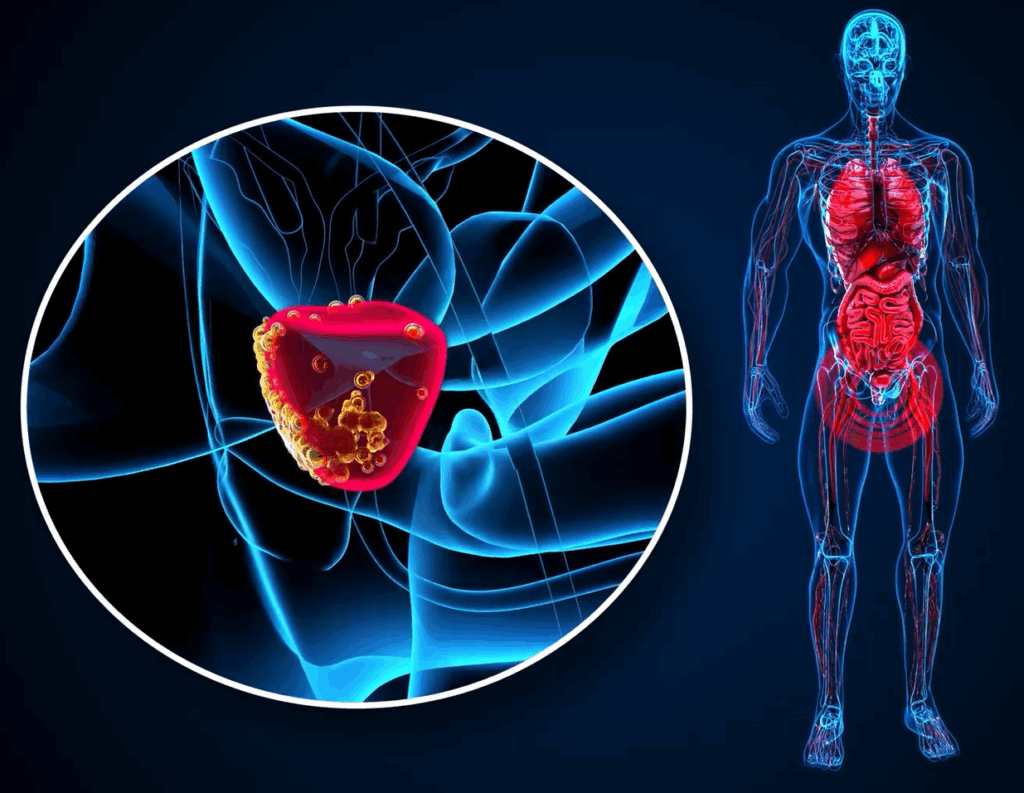PSA Test: The Key to Early Prostate Cancer Detection
Understanding Prostate Health: Early Detection and Treatment
 Your Prostate Health Matters
Your Prostate Health Matters
Prostate cancer is a significant concern for men’s health, being the second most common cancer among US men. With approximately 300,000 new diagnoses each year, early detection is crucial for effective prostate cancer treatment. This page provides vital health tips and information on prostate health, prostate exams, and the importance of regular screening.
The Role of PSA Testing and Early Detection
One of the most important tools for early detection of prostate cancer is the Prostate Specific Antigen (PSA) test. This simple blood test measures PSA levels, a protein produced by the prostate. Dr. Benjamin Lowentritt MD, Director of Prostate Cancer Services at United Urology Group, Chesapeake Urology, emphasizes the importance of a baseline PSA blood test in a man’s 40s, followed by annual prostate screening from their 50s through their 70s. Regular PSA testing can help identify potential issues early, allowing for timely intervention and better outcomes. Patient advocate Bob Lane, living with metastatic prostate cancer, undergoes PSA testing every 90 days, highlighting its role in ongoing monitoring.
Understanding Prostate Cancer and Treatment Options
Prostate cancer can manifest in different forms. Metastatic castration-sensitive prostate cancer (mCSPC) is a hormone-sensitive type where cancer has spread but still responds to testosterone-lowering treatments. Non-metastatic castration-resistant prostate cancer (nmCRPC) is when the cancer has not spread but no longer responds to such treatments. Understanding your specific diagnosis, including your Gleason score, is vital for determining the most appropriate prostate cancer treatment.
 For advanced cases, treatments like ERLEADA® (apalutamide) play a crucial role. ERLEADA® works by blocking testosterone’s action, which can put the cancer into a dormant phase for years. It’s a prescription medicine used for both mCSPC and nmCRPC. Beyond medication, advancements in minimally invasive surgery and robotic surgery offer effective options for many patients.
For advanced cases, treatments like ERLEADA® (apalutamide) play a crucial role. ERLEADA® works by blocking testosterone’s action, which can put the cancer into a dormant phase for years. It’s a prescription medicine used for both mCSPC and nmCRPC. Beyond medication, advancements in minimally invasive surgery and robotic surgery offer effective options for many patients.
Comprehensive Care and Support
United Urology Group and Chesapeake Urology are committed to providing comprehensive care for prostate cancer patients. They believe in empowering men with knowledge about prostate awareness and their treatment journey. Oncology care involves not just medical treatment but also a strong support system. They encourage patients to be informed, ask questions, and utilize resources like support groups and ERLEADA.com to better understand their diagnosis and treatment options. Cancer research continues to advance, bringing new hope and improved therapies.
As with all medications, there can be side effects, and each patient is different. It is best to consult your physician for the best treatment.
It is recommended to get your PSA checked each year to monitor your condition, even if you have no symptoms.
Listen on Podcast
Did you like your experience?
Please leave us a Testimonial HERE if you have a Google account.
Your word helps get our word out to more people.
Thank you in advance!!


